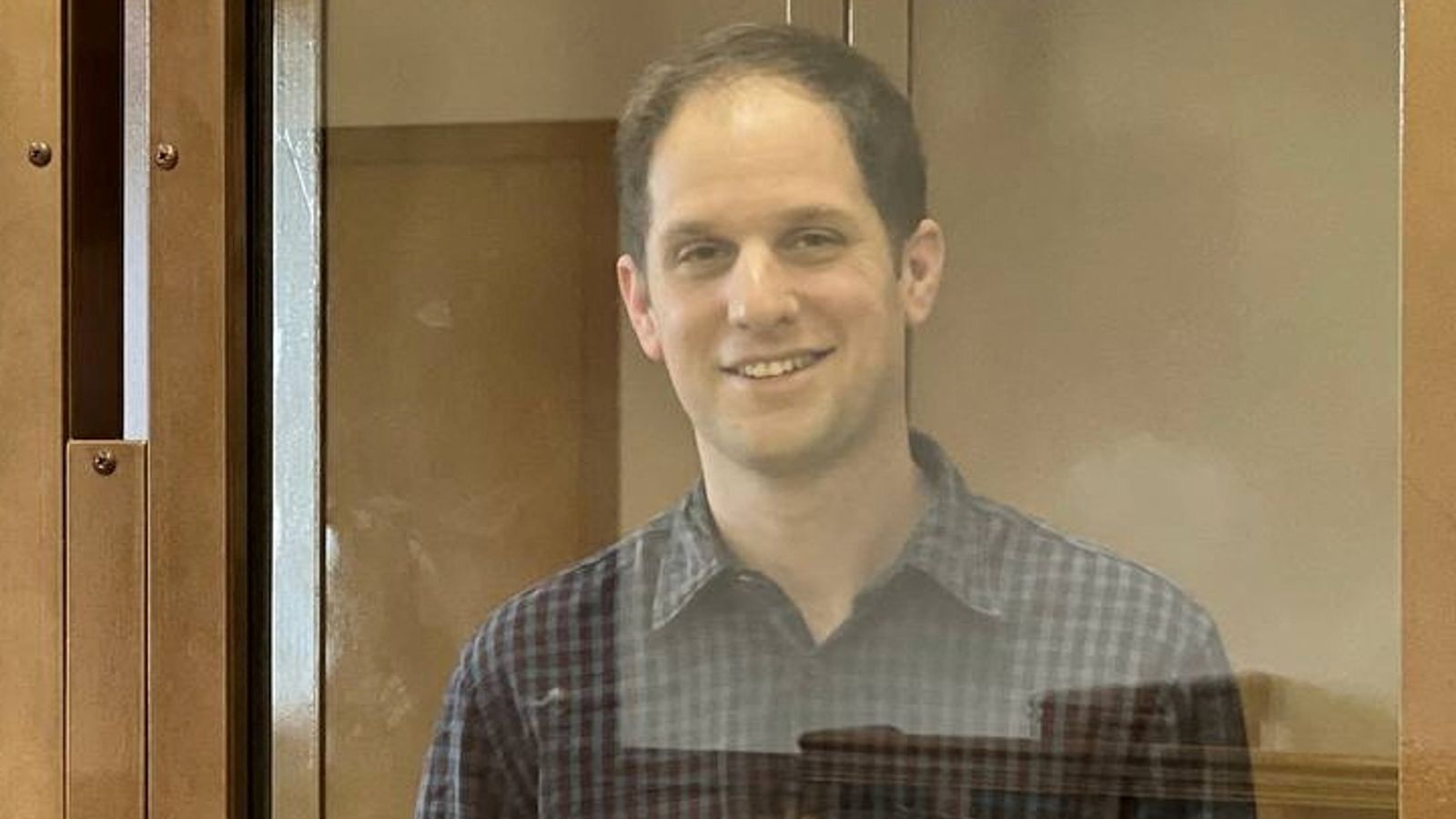It is one year to the day since Evan Gershkovich, a 32-year-old reporter for the Wall Street Journal, was detained by the FSB, dragged out of a restaurant in Ekaterinburg with a bag over his head and brought to Moscow’s Lefortovo jail.
He is accused of spying for the US though Russia has produced no evidence. He and the US government vehemently deny the allegations.
So far despite a year punctuated by brief and fruitless court appearances which have seen his detention extended and his lawyers’ appeals against those extensions thrown out, there has been no hint of his case coming to trial.
For the rest of that year he has sat lonely and isolated. He reads and writes letters. He tries to keep fit in his tiny cell and gets to walk outside for an hour a day. The only people he sees apart from his cellmate are his lawyers and the US ambassador Lynne Tracy.
Russia-Ukraine latest: Moscow claims to have evidence Ukraine funded concert attack
“He’s staying strong, still funny, still himself,” says Polina Ivanova, a journalist at the Financial Times and one of Gershkovich’s best friends. “He’s still the Evan that we know so well and that we lost a year ago.”
Gershkovich is the first foreign journalist to be detained on espionage charges since the Cold War and if found guilty in what would be a closed trial he could face up to 20 years in jail.
Russian officials have said any potential prisoner exchange would only happen once a trial was concluded. That said, if Vladimir Putin sees a deal he wants, the niceties of the Russian legal process are unlikely to get in the way.
The president’s sights seem set on Vadim Krasikov, a Russian hitman in jail in Germany for the murder of a Chechen man in 2019 in the Berlin Tiergarten. A complicated exchange deal was reportedly set to see Alexei Navalny, Gershkovich and another detained American Paul Whelan exchanged for Krasikov. Only then, Navalny died.
“The more public we render things of this nature, the more difficult it becomes to resolve them,” Mr Putin told the American journalist Tucker Carlson in an interview in February, before Navalny’s death. “Talks are underway and there have been many successful examples of these talks crowned with success.
“I also want [Gershkovich] to return to his homeland at last,” Mr Putin said.
Read more:
Nothing gives me hope, says mother of Gershkovich
White House: Charges against reporter ‘ridiculous’
The more deals are done, the more hostages are taken
Now though, without a bigger prize like Navalny in the mix, it is unclear how Germany might be persuaded to release a convicted assassin in order to facilitate the recovery of US citizens from Russian jails.
Plus there is the jeopardy of giving Mr Putin what he wants. Hostage diplomacy has a self-fulfilling quality. The more deals are done, the more hostages are taken. It is why the UK says it does not engage in prisoner swaps.
Keep up with all the latest news from the UK and around the world by following Sky News
“Evan was in Russia and was doing crucial work, not just as an individual, he was doing public service for the West to get a better understanding of what’s going on in Russia,” says Pjotr Sauer, another of Gershkovich’s best friends who covers Russia, now remotely, for The Guardian.
“I think a lot of people in the West owe him a lot and it goes without saying that press freedom is crucial, so I do think Western countries have to do everything to get him out.”
Be the first to get Breaking News
Install the Sky News app for free
Stories Gershkovich would have loved to cover
So much has happened in Russia this past year which Gershkovich would have loved to have covered.
Yevgeny Prigozhin’s mutiny, the man himself blown out of the sky weeks later, the death of Navalny and the massive outpouring of support at his funeral, even last week’s horrific terror attack at the Crocus City Hall. He has state TV in his cell. It won’t have given him a full picture but he knows Russia well enough to fill in the gaps.
“He would want to be working, he would want to be doing what he was doing before his detention which was telling the story of wartime Russia to the wider world,” Ms Ivanova says. “Something that is so important and just so rare at the moment – and so difficult.”










